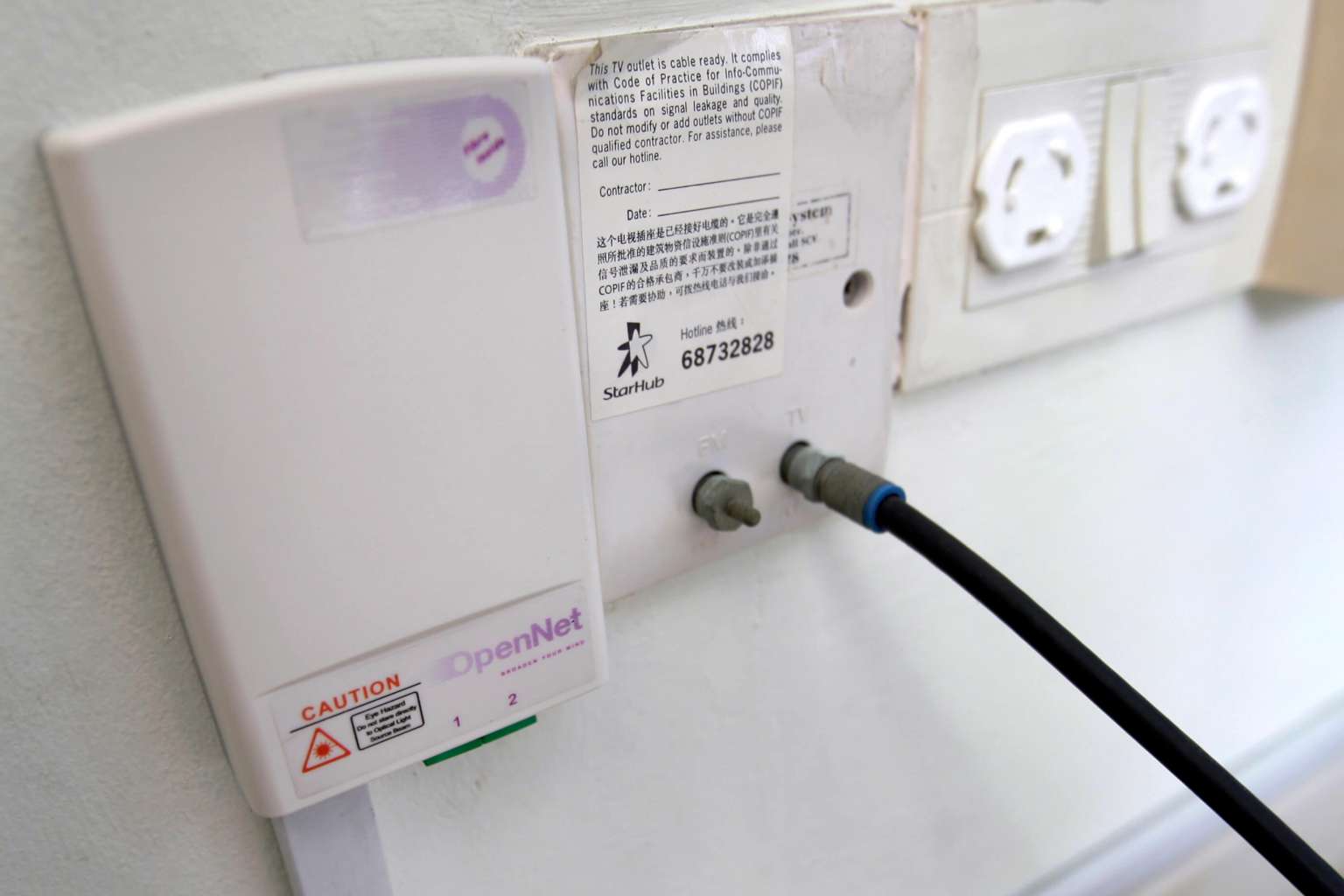New homes to get more fibre points for smart devices under proposed changes to building code
Sign up now: Get ST's newsletters delivered to your inbox

The IMDA has proposed that new homes should come fitted with wiring delivering high-speed fibre broadband for the entire unit.
PHOTO: ST FILE
Follow topic:
SINGAPORE - All new homes will soon come fitted with wiring delivering high-speed fibre broadband not just to every room, but also in the kitchen and main entrance - if a new building code gets the green light.
The proposal by the Infocomm Media Development Authority (IMDA) is in anticipation of the advent of smart devices in homes - such as a connected fridge to keep track of groceries, or motion detectors and surveillance cameras for security purposes - as part of Singapore's smart nation drive.
IMDA also proposed the mandatory installation of a second fibre termination point in every home, according to a consultation paper it released on Wednesday (April 26).
New homes are already fitted with one fibre termination point as developers have been required by law to install them since May 2013, recognising that telecommunications wiring is as essential as electricity points and water pipes.
But IMDA said the current building code - dubbed The Code of Practice for Info-communication Facilities in Buildings (Copif), last revised in 2013 - specifying one mandatory fibre termination point in every home "may not be sufficient".
"With the increasing reliance on and pervasive usage of smart devices, which are not confined to any one space within the home, it may be prudent to ensure that other spaces such as the residential unit's main entrance and kitchen be equipped to cater for such developments," it added.
The proposed changes follow the legislative amendments to the Telecommunications Act, which came into effect in February.
The building code must be amended to reflect changes in the legislation that give IMDA wider powers to, among other things, direct building owners to provide rent-free rooftop space for mobile equipment and allow the equipment in their premises to provide mobile signals to neighbouring areas.
IMDA hopes to use the consultation to address other issues before revising the building code.
Among the new proposals, IMDA also specified two hours as a reasonable notification period for building owners with round-the-clock security management to provide emergency access to mobile equipment in their premises.
"Undue delay by building owners (and) managers to provide emergency access to space and facilities may affect service restoration and result in significant inconvenience to the affected public," said IMDA, noting that emergency access delays are common today.
For buildings that do not have round-the-clock security management, building owners must work out with telcos an acceptable notice period for emergency access, said IMDA.
The consultation will end on May 24.

